TWTW: The World This Week / Episode #88
On-campus fever… The Trial goes on… Elections 2024: Europe, India… Blinken hits the road… Back to the closet in Iraq…Paris's Olympic speed bumps… Brazilian cartoonist Thiago on our global barbecue
This weekly feature for Andelman Unleashed, continues on its mission to explore how the media of other nations are reporting and commenting on the United States, and how they are viewing the rest of the world.
How others see America
It's the "fever" that's gripping America's college campuses that has seized the world's attention. The leading center-right French daily Le Figaro sent its special correspondent Adrien Jaulmes to the Columbia campus on New York's Morningside Heights to marvel how in New York "pro-Palestinian fever has invaded the campus."
After Harvard, Penn and Stanford, Columbia is shaken by demonstrations against Israel, with anti-Semitic tendencies. The keffiyeh is all the rage on campus. Female students wear it like a shawl, male students tie it around their necks.
Those who have forgotten theirs can buy them from a Palestinian flag peddler located on Broadway at the entrance to Columbia University. Palestinian flags are even more numerous on campus. For the past week, a tent village, the Gaza Solidarity Camp, has been set up on the South lawn. The University management called in the New York police department to dislodge them, and around 100 arrests took place. But this only made the situation worse…..
Seven months after the start of the war between Israel and Hamas in Gaza, the Israeli-Palestinian conflict continues to sow disorder on American campuses.
In the middle of Passover, when the question "why is this night different from all other nights" is at the heart of the seder ceremony, the Israeli daily Haaretz had its New York correspondent Judy Maltz, ask "Why is this week in the Israel-Gaza campus wars different from all other weeks?
With the worst of the fighting between Israel and Hamas behind us, why now, of all times, are the tensions sparked by the war suddenly spinning out of control on campuses across America?
It turns out that an event in Washington that wasn't even supposed to take place at this time has ignited some of the biggest student protests around the country since the Vietnam War.
Columbia's president Nemat Minouche Shafik went to Washington to testify before Congress. They were waiting for her when she returned home. Maltz picked up her account:
After returning to New York the following day, Shafik saw an opportunity to show the congressional committee she meant business. She asked the New York Police Department for help in evicting the students. More than 100 were suspended and taken into custody in this extraordinary crackdown. If Shafik had hoped that photos and footage of students being herded into police trucks, their hands zip-tied behind them, would extinguish the rebellion, it accomplished the exact opposite….
Drawing inspiration from Columbia, pro-Palestinian student groups across the country have been setting up their own encampments in solidarity with Gaza, in defiance of university rules. In recent days, the movement has gone international, with tent cities cropping up at universities as far away as Australia.
"Our university is scared," wrote Daniella White, higher education reporter for Australia's The Sydney Morning Herald :
Sydney University student organisers say their encampment is only the second international protest and first in Australia since the protests spread across the US.
Student and organiser Jasmine Al-Rawi said the protesters were “just getting started”, vowing to remain at the campsite outside the university’s famous quadrangle building.
Executive Council of Australian Jewry co-chief executive Alex Ryvchin said the scenes from protests in the US should horrify vice-chancellors, academics and students alike. “So many Jewish students are concealing their identities and are reporting to the ECAJ and their universities that they feel marginalised and excluded on campus,” he said.
Sydney University has warned staff and students it will not hesitate to take “firm and decisive disciplinary action” should anyone be found to breach the institution’s acceptable conduct policies.
Unsurprisingly, the official China Daily reported from Beijing:
Pro-Palestinian protests have spread to more college campuses in the United States, as authorities appeared to be running out of patience and police began to push back forcefully.
Riot officers used chemical irritants and tasers on Thursday at one university as administrators at some of the country's most prestigious institutions battled to prevent occupations taking hold.
Staging sit-ins and mounting boisterous demonstrations, the activists are calling for a cease-fire in Israel's conflict with Hamas, as well as for colleges to sever ties with the country and with companies that they say profit from the conflict.
A flashback … 1968
On Friday, Andelman Unleashed published the third excerpt of our memoir-in-creation, Don’t Shoot: I’m an American Reporter. It takes us back to those days 56 years ago this month when Columbia was again torn by student protests, with some lessons for today…..
And then, there was the trial
Some European papers have their own correspondents watching the trial with intense focus…as Josie Ensor has been doing for Murdoch-owned The Times of London:
Donald Trump became furious after a longtime friend and publisher of a tabloid magazine tried to pull out of a “hush money” deal to silence his female accusers, a New York court was told. Trump is accused of falsifying internal Trump Organisation records as part of a scheme to bury damaging allegations that he feared could hurt his 2016 presidential campaign.
The trial is based on a payment to the porn actress Stormy Daniels to keep her quiet over an alleged sexual encounter with Trump years earlier. It has also featured claims of another payoff, for the same reason, to the Playboy model Karen McDougal. David Pecker, who until 2020 was chairman of the National Enquirer publisher American Media Inc, was testifying at the trial for a third day on Thursday, having said on Tuesday he had acted as Trump’s “eyes and ears”.
Le Monde's Piotr Smolar, reporting from Washington, took a more political view of the proceedings:
The former President of the United States had to accept the exposition of the facts gathered against him by the prosecution….This stage of the criminal trial was of particular importance to this case as the defendant himself is trying to paint it as 'political persecution.’
Europe 2024: Europe, India
Two of the world's largest population centers are entering a critical period of decision with the outlook for one far more fragile and potentially seismic than the other.
In India, the extraordinary six-week election in the world's most populous country and at least for the moment the largest democracy with some 969 million voters, balloting still has five weeks to run. And Prime Minister Nahendra Modi, while little concerned over an all but certain re-election victory, has to be a bit troubled by the scene as the nation enters its "phase two" of voting. As the Indian Express newspaper reported:
It is too early to tell if these are indications of disenchantment of three of the four ‘castes’ posited by the Prime Minister—farmers, youth women and the poor—but a mass of observations pointing in a similar direction can be worrying signs for the BJP.
The first and the largest phase of the 2024 Lok Sabha elections has registered an underwhelming voter turnout of around 66.1 per cent, which is a drop of nearly four percentage points compared to 2019. There is a decline in turnout in 19 of the 21 states, which had one or more seats going to polls in this phase.
The central question is whether this is true voter apathy on the part of Modi voters which could leave some path forward for the more motivated voters of his opponents.
Andelman Unleashed, in line with its pledge to chronicle every national election will follow the process throughout the voting and onward to the final results due June 4. Four days later we should have the results for Europe's new parliament.
But in Europe, matters are far more intense even than in India. As David Carretta and Christain Spillmann of our sister SubStack La Matinale Européene put it:
Europe is mortal, it can die and it will die if our choices are not the right ones. Emmanuel Macron hit hard in his speech on Europe at the Sorbonne. A mega speech, both twilight and whiplash, in which he outlined the broad outlines of the action to be taken to “Make Europe Great Again" and sketched the portrait of the next president of the European Commission charged with leading this revolution.
We must change our way of thinking, of acting. The French head of state chanted this language throughout his very long speech of almost two hours to introduce each of his thoughts and proposals. “I’m too long, I’m aware of that. But Europe is a conversation that never ends,” he explained. Considered indigestible by a number of observers, Emmanuel Macron mainly elaborated on positions already stated during his numerous press conferences. He congratulated himself on having been right in his geopolitical analysis in 2017 and on having been followed in his call for more European sovereignty.
Incidentally, while we don't ordinarily follow local elections, we may have to break our rule for municipal votes set for next Saturday in Britain. As Michael Savage, policy editor of The Guardian put it:
[Prime Minister] Rishi Sunak faces a set of local elections that risk further destabilising his premiership and emboldening his critics. Five contests will reveal how the main parties are shaping up, just months before a general election.
[And especially in London where incumbent Mayor] Sadiq Khan has double-digit leads in the polls…Labour fears a combination of changes to the voting system, a backlash against Khan’s expansion of the ultra-low emission zone, a suppressed leftwing vote due to Labour’s position on Gaza and criticism that comes with long-term incumbency make the race closer than it seems. Anything other than a Khan win over Tory candidate Susan Hall would be a huge shock.
How others see the World
Blinken on the road: China, Russia … Arabs, Israelis, Gaza
Secretary of State Antony Blinken took a brief pause in Washington between a breathtaking series of trips to hang out at the White House Correspondents Association [WHCA] gala Saturday night with his wife, White House cabinet secretary Evan Ryan.
He was just back from a lighting trip to Beijing. That's where he was trying to persuade Chinese leader Xi Jinping and foreign minister Wang Yi that they were picking the losing side in hooking up with Putin's Russia.
None of that seems to have gone down very well, as Zhuang Pinghui in Beijing, Kawala Xie in Hong Kong, and Orange Wang reported for Hong Kong's South China Morning Post :
Chinese President Xi Jinping called on the United States to be a partner of China and not “say one thing and do another” in a meeting with Secretary of State Antony Blinken in Beijing on Friday. Blinken, in turn, expressed concerns about China’s supply of goods that could have military uses to Russia and its alleged manufacturing overcapacity.
The two countries…appeared to have made little progress on the most challenging issues as Blinken wrapped up his three-day trip.
In a press conference following his meeting with Xi, Blinken said he raised concerns over China’s supply of dual-use goods—which have military and civilian uses—to Russia. China’s increasing closeness to Russia in the wake of its invasion of Ukraine has heightened US distrust.
“In my discussions today, I reiterated our serious concern about the PRC [People’s Republic of China] providing components that are powering Russia’s brutal war of aggression against Ukraine,” he said….adding the US is “fully prepared” to take additional measures if “we don’t see a change."
“I was extremely clear about our concerns, in some detail. We’ll have to see what actions follow from that. Now I think China has demonstrated in the past when it comes to Russia and Ukraine, that it can take positive action,” he said, referring to previous comments by Beijing warning against the use of nuclear weapons.
In fact, there may be stormy waters ahead. In May, Xi is planning a swing through Europe—France as well as Serbia and Hungary where leaders are increasingly cozy with Putin.
And Putin's planning what could be a landmark visit to Beijing.
As for Blinken, he'll be touching down in Saudi Arabia on Monday to try to persuade the Gulf Cooperation Council nations that, as State Department spokesman Matthew Miller put it:
It is Hamas that is standing between the Palestinian people and a ceasefire. He will discuss the recent increase in humanitarian assistance being delivered to Gaza and underscore the importance of ensuring that increase is sustained. The Secretary will also emphasize the importance of preventing the conflict from spreading and discuss ongoing efforts to achieve lasting peace and security in the region, including through a pathway to an independent Palestinian state.
None of which seems very likely anytime soon. Jonathan Lis of Israel's Haaretz newspaper had an exclusive that suggests stormy seas for Biden:
'Every time we get close to a deal, there's sabotage, from both sides', a top Qatari official told Haaretz. 'Both Israel and Hamas are to blame. We wanted to save human lives, but Qatar became the punching bag for those trying to protect their political futures.' In a first-ever interview to any Israeli media, Dr. Majed Al-Ansari, an advisor to Qatar's prime minister, told Haaretz that Israel and Hamas are not showing enough commitment to reaching a cease-fire/hostage release deal.
The conversation in Doha, which took place after the Qatari prime minister said he was "re-evaluating" the country's role in negotiations, occurred amid reports in Israel that another proposal is being examined by both Israel and Hamas, amid fierce demonstrations within Israel designed to pressure Prime Minister Benjamin Netanyahu to show greater flexibility and go for a deal.
Back in the closet in Iraq
"Iraq's parliament has passed a new amendment that could see LGBTQ people imprisoned for up to 15 years for same-sex activity," reports Alex McDonald in London-based Middle East Eye:
Raed al-Maliki, a member of the Parliamentary Legal Committee, said at a press conference that the amendment to the anti-prostitution law would incorporate provisions to penalise "practices imitating women", transgenderism and "promoting sexual acts", and banning organisations "promoting" prostitution and sexual deviancy, according to Shafaq News.
[ed's note: Shafaq News is closely connected to the Ayatollah Ali al-Sistani, the highest ranking Shia jurist in Iraq, and also publishes Sistani's fatwas. It is, however, the authoritative source of Shiite news. ]
The new law stipulates a minimum of 10 years in prison for homosexual acts, and at least seven years in prison for "promoting" LGBTQ activity. Amir Al-Maamouri, an independent MP, told Shafaq News that the new legislation was a "significant step in combating sexual deviancy given the infiltration of unique cases contradicting Islamic and societal values".
Before the new amendment, homosexuality had been legal in Iraq although many LGBTQ people faced threats, abuse and murder in the country, while laws punishing "immodest acts" had been used by the authorities to target them.
The U.S. State Department promptly condemned the law, Matthew Miller commenting:
[The law] threatens those most at risk in Iraqi society. It can be used to hamper free-speech and expression and inhibit the operations of NGOs across Iraq. The legislation also weakens Iraq’s ability to diversify its economy and attract foreign investment. International business coalitions have already indicated that such discrimination in Iraq will harm business and economic growth in the country.
Spanning the Atlantic
The great weekly Air Mail created by Graydon Carter and Alessandra Stanley featured an Andelman preview of the latest trans-Atlantic exhibition opening Thursday at New York's Grolier Club. It’s well worth a visit….
Don't forget the Olympics….
Andelman Unleashed will be on hand in July, and indeed at the brand new state-of-the-arts aquatic center located just northeast of Paris in the most singularly deprived region of France…as France 24's Benjamin Dodman explains:
Located on the northern edge of Paris, Saint-Ouen will host a large chunk of the Olympic Village this summer and the Olympic Aquatic Center, part of huge infrastructure projects that officials have touted as a game-changing legacy for the Seine-Saint-Denis area, the poorest in mainland France.
Saint-Ouen resident Zora Cheikh, however, is more concerned about the chronic teacher shortages that have stripped her children of hundreds of hours of learning throughout the academic year.
“When you see the money they’re pumping into the Olympics, which will last only a few weeks, it’s infuriating,” said the mother of five. “Our kids’ education, that’s where the future lies.”
Cheikh flagged a dearth of replacement teachers, nurses and supporting staff at her children’s schools that have gone months without French, math or music teachers. She also lamented a crumbling infrastructure that leaves teachers and pupils to contend with pest infestations, leaking roofs and classrooms that have neither heating nor ventilation.
While such problems are hardly exclusive to Seine-Saint-Denis, they are concentrated and exacerbated in this densely populated, working-class area that has absorbed immigrant wave after wave and is home to France’s youngest population. And a large Islamic majority. Growing anger at this state of affairs has resulted in a rare coalition of parents and teachers’ unions. Together, they have staged weeks of strikes and protests across the region and in central Paris, calling for urgent measures to help struggling schools….
Educational reforms pushed by Prime Minister Gabriel Attal’s government and fiercely resisted by a united front of unions…[including] mandatory uniforms—long advocated by right-wing and far-right politicians—at dozens of schools in a trial towards possibly making them compulsory nationwide. The push for school uniforms, which the government touted as a means to reduce social inequality and uphold France’s secular values, came months after it stirred controversy in diverse areas such as Seine-Saint-Denis with a highly publicised school ban on abayas favored by some Muslim girls.
“The government spends a fortune on [school] uniforms nobody wants but there’s no money for toilet paper or soap at my school,” said 15-year-old Agathe.
A protest rally outside the brand-new Olympic Aquatic Centre in Saint-Denis as President Emmanuel Macron attended its inauguration signaled their intent to leverage the Paris Games as they attempt to step up the pressure on the government….
….and with just 93 days to go. Andelman Unleashed arrives in Paris on July 17. Lots to chronicle….Can't wait!
Finally, there’s …. Thiago
The great Brazilian cartoonist Thiago imagines a world on the brazier with a spatula outlining the still all-to-prevalent coal-fired generating plants. But a real global menace is contained in the heart of Brazil's Amazonian rain forests—shrinking before the inactions of the nation so close to the heart of Thiago. As fellow StubStack page Callaway's Climate Insights observed:
"Brazil is caught in a climate Catch-22 as a global agriculture crisis threatens. Mining proposals are caught between indigenous rights, economy, and the environment."
Thiago Lucas, who signs his works simply with his first name, was born in Recife in 1987, studied history at the Federal University of Pernambuco, and has a postgraduate degree in Northeast Brazil History from the Catholic University of Pernambuco. During this period, he began researching caricature as a means of exposing the “drought industry” in northeast Brazil. His interest in caricature began at age 14, when he began following drawings published in the newspapers of Pernambuco. For him, interpreting the world through graphic humor is a form of resistance to a world at once unequal and exclusive. He contributed to the newspaper Folha dePernambuco from 2009 to 2015, and currently for Sistema Jornal do Commercio de Comunicação, and is featured in the extraordinary collective Cartooning for Peace. Last June, Andelman Unleashed first published Thiago reflecting on Donald Trump luxuriating in a warm bath of classified documents.
Here's how Thiago imagines himself:





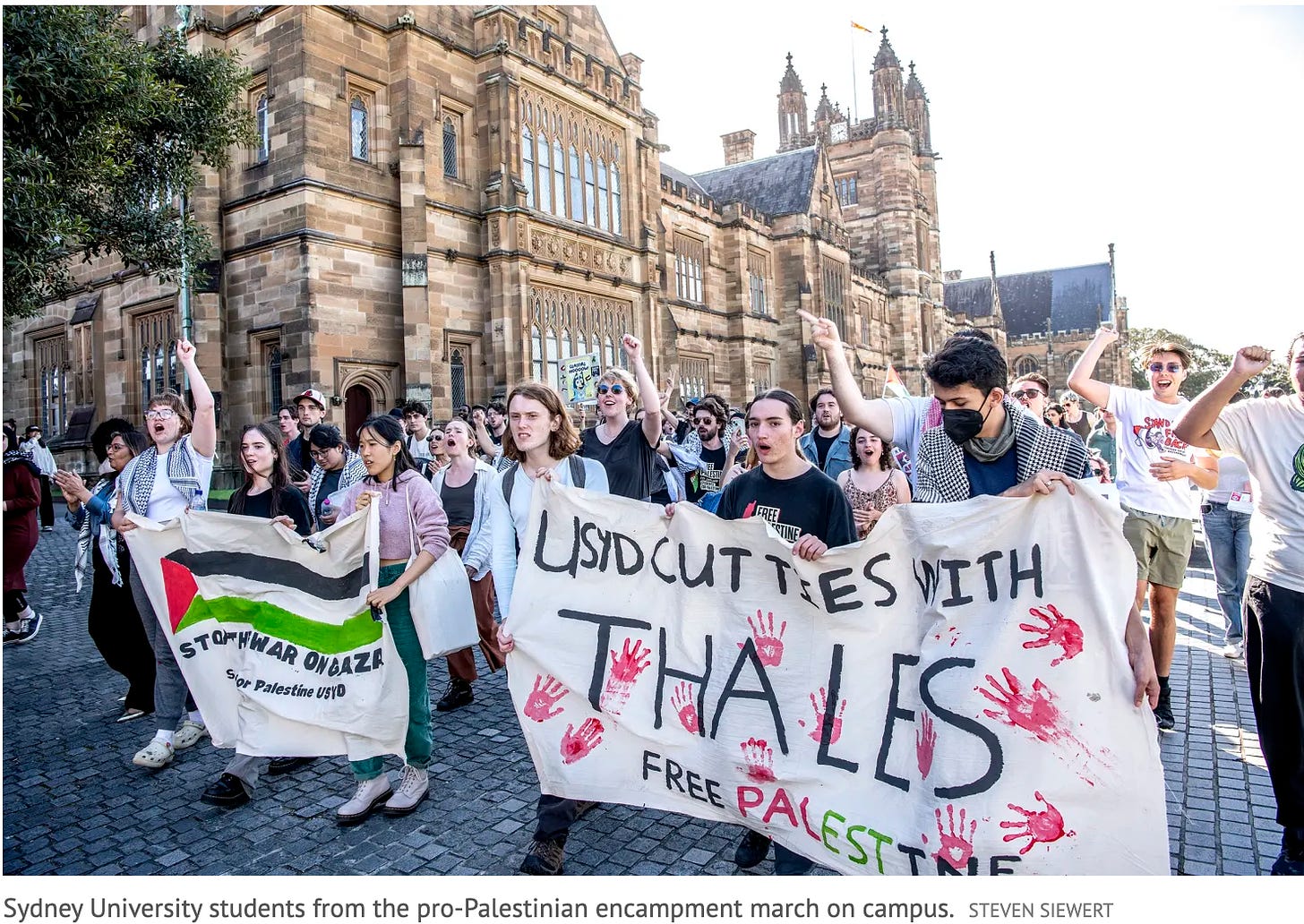
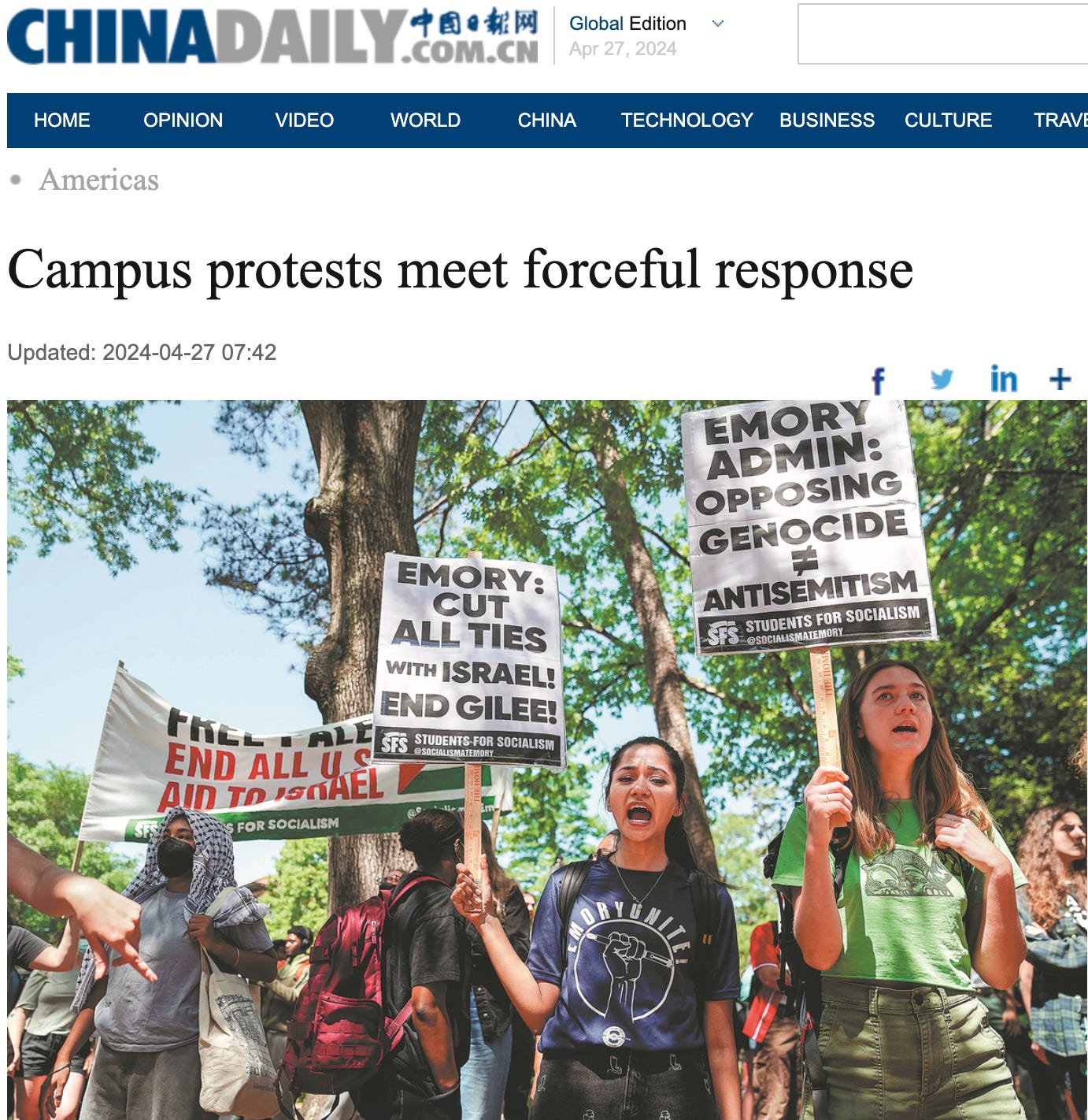
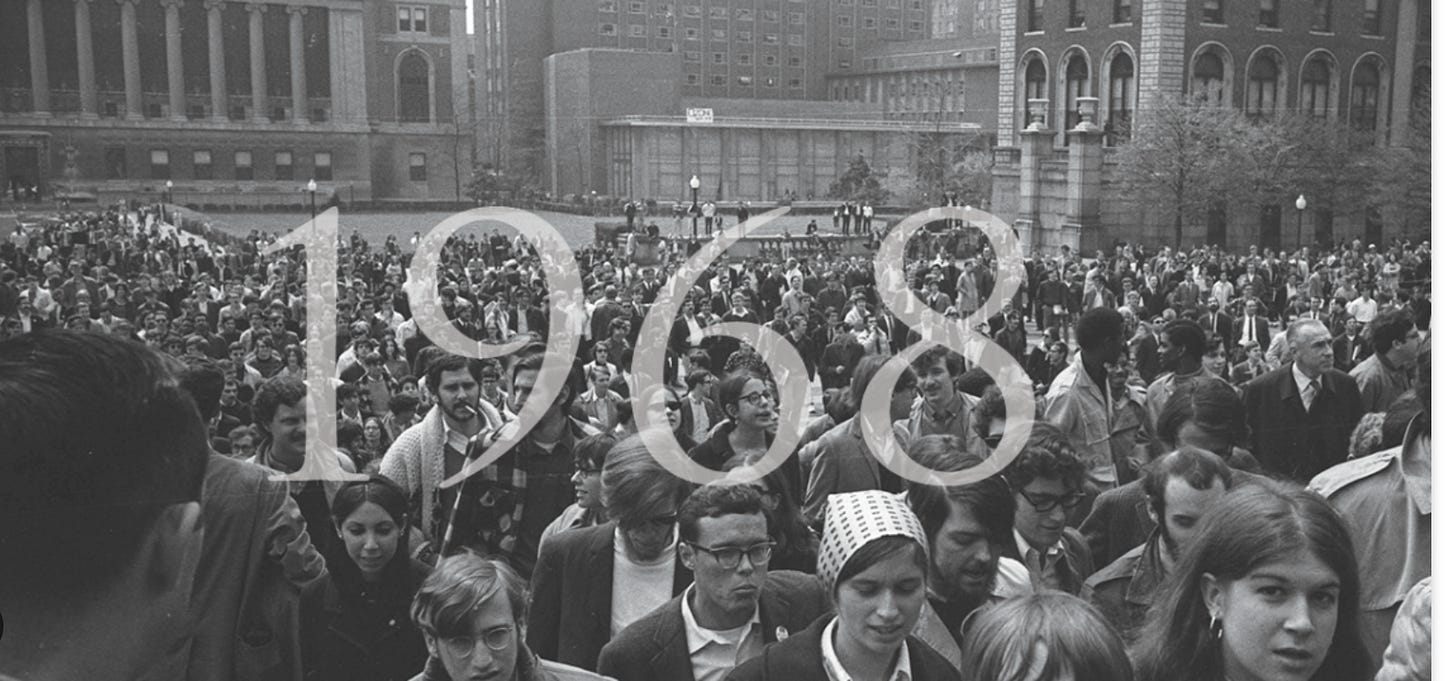

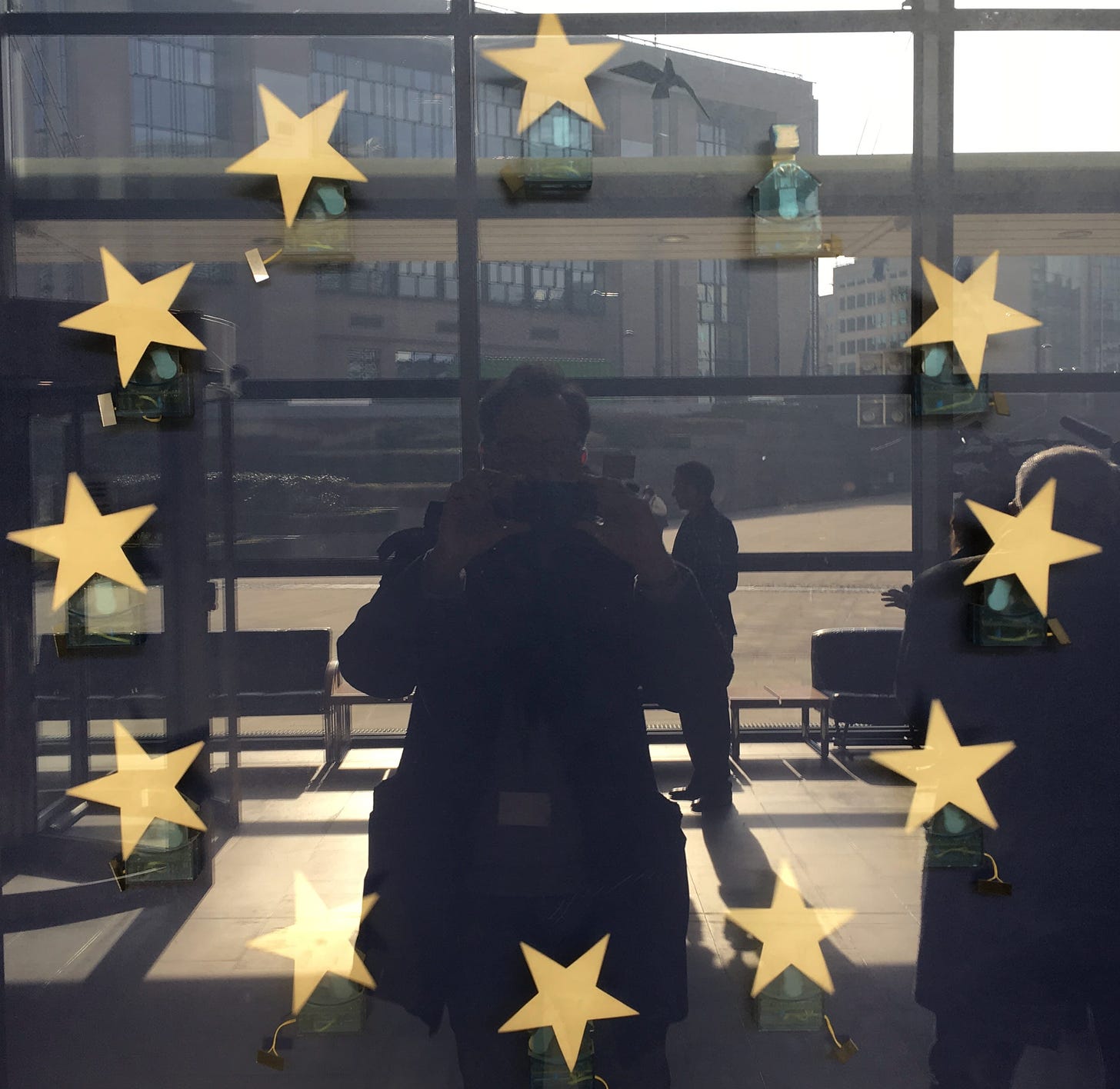
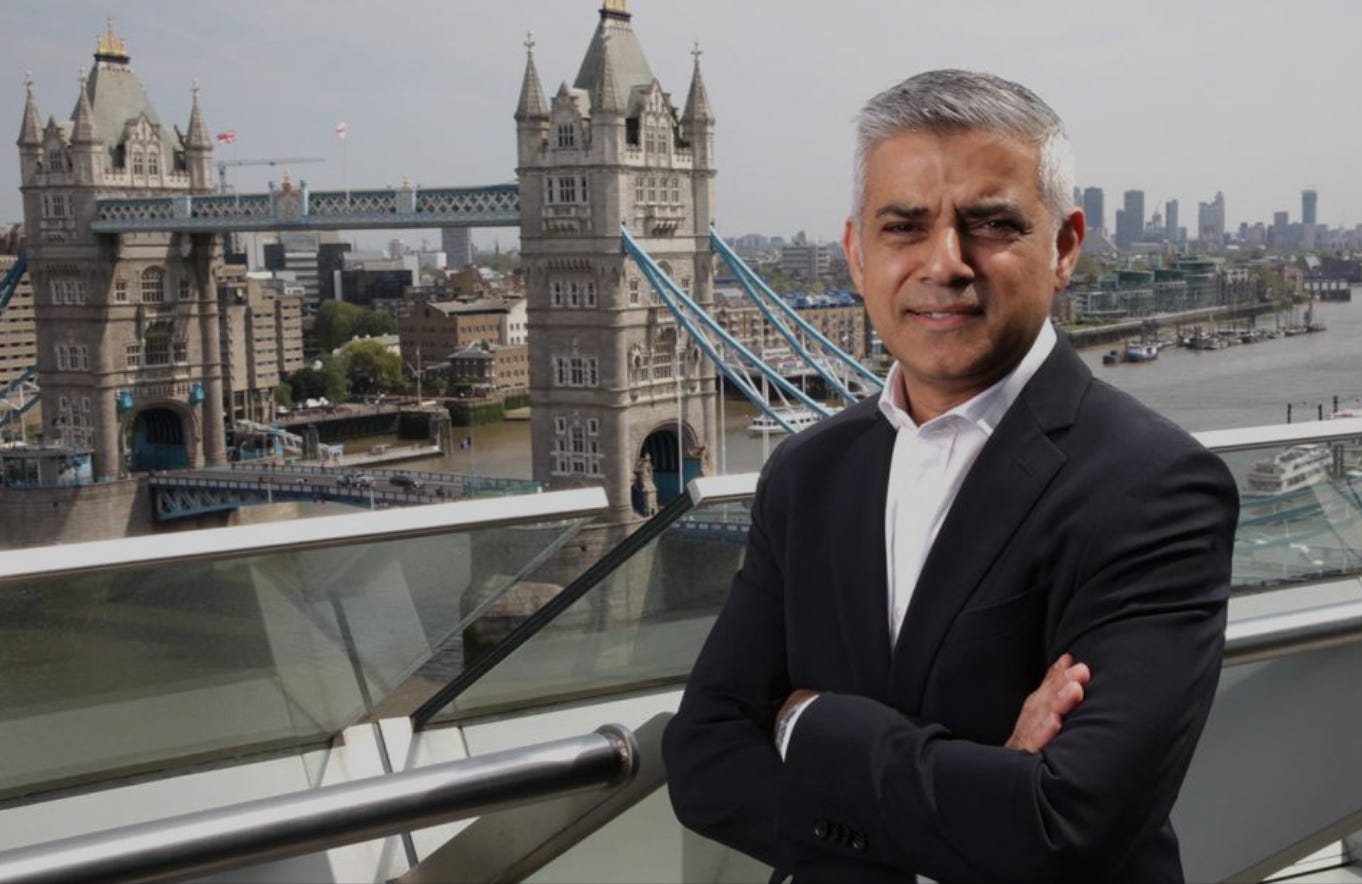
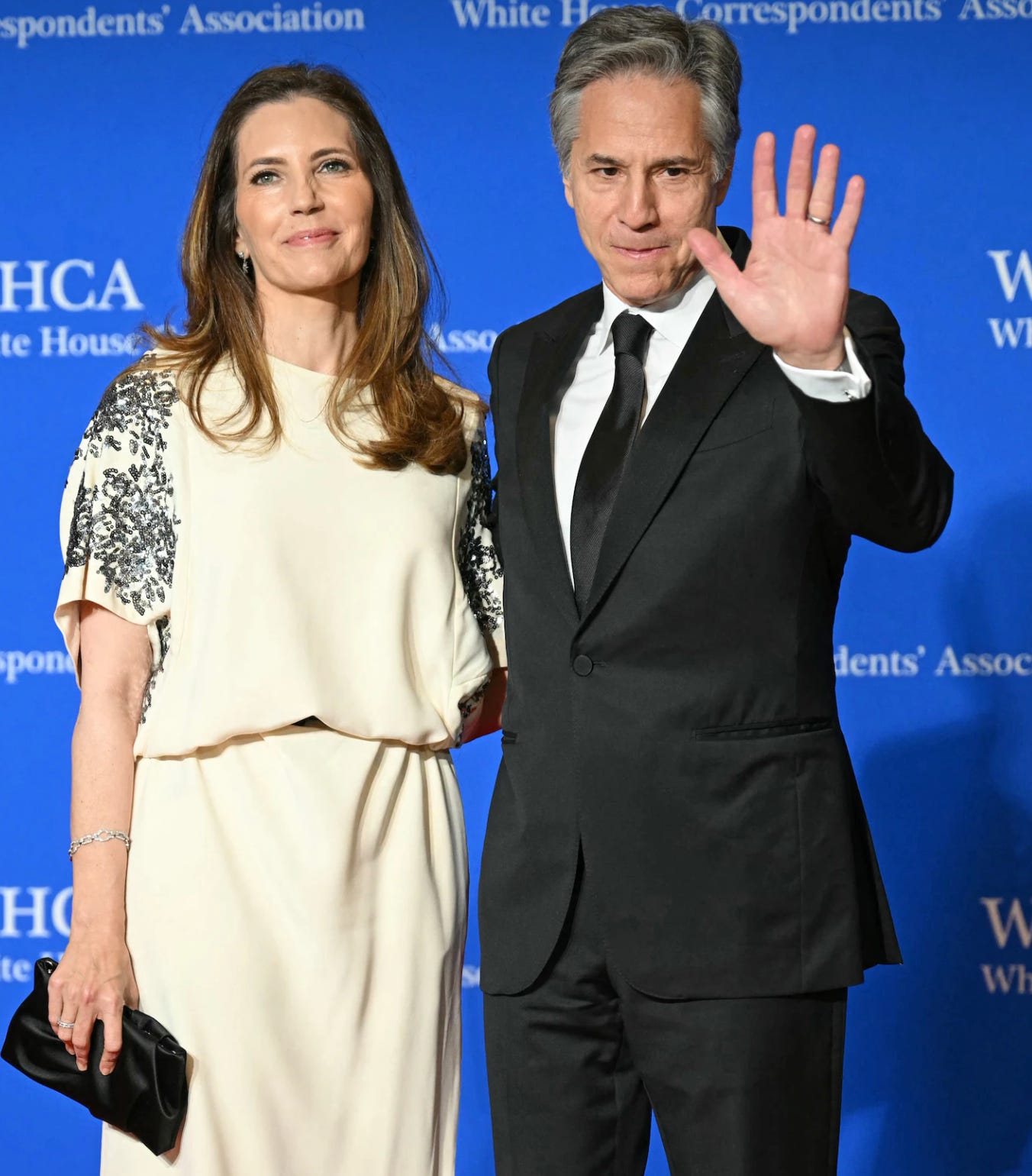
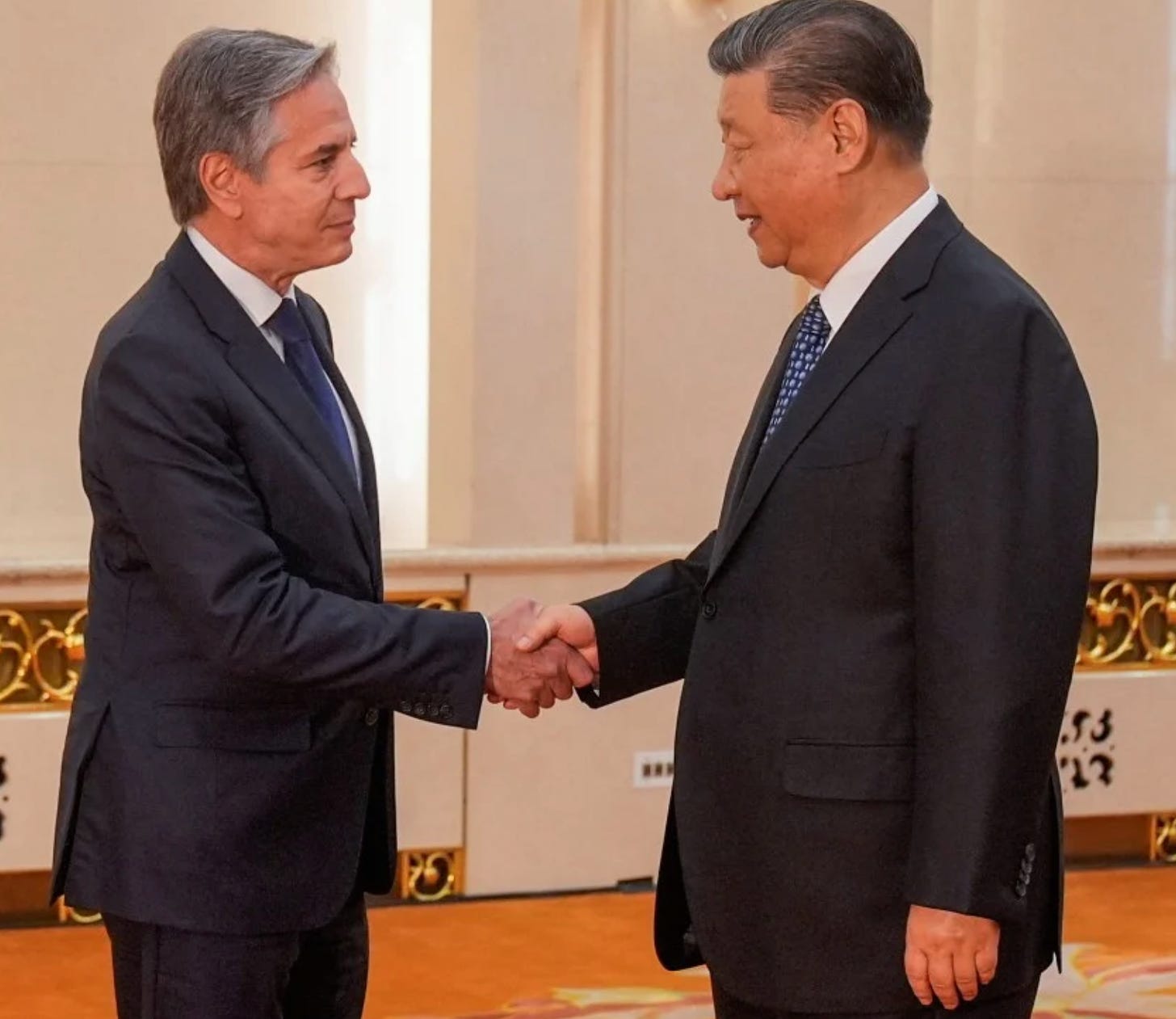
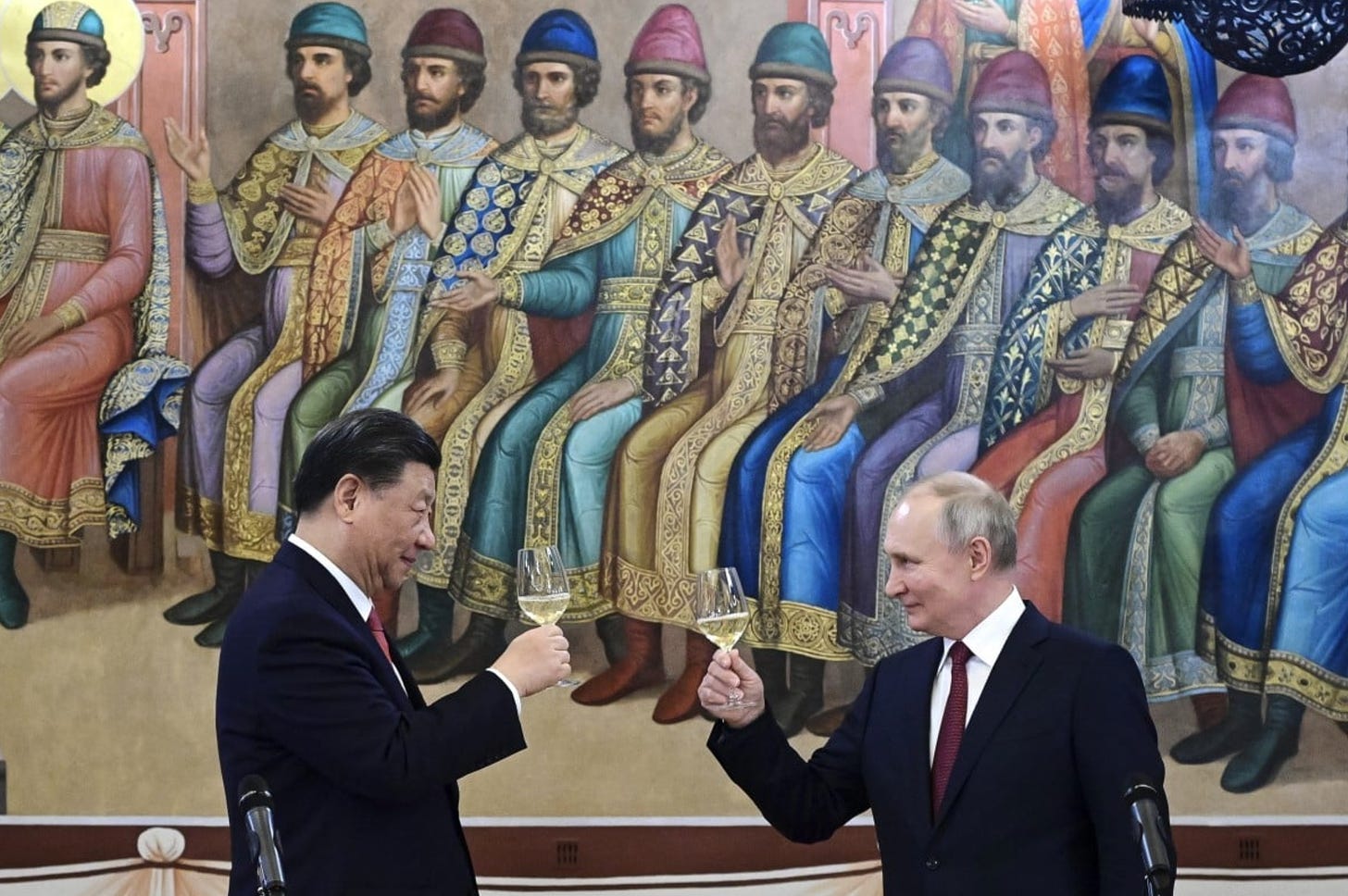

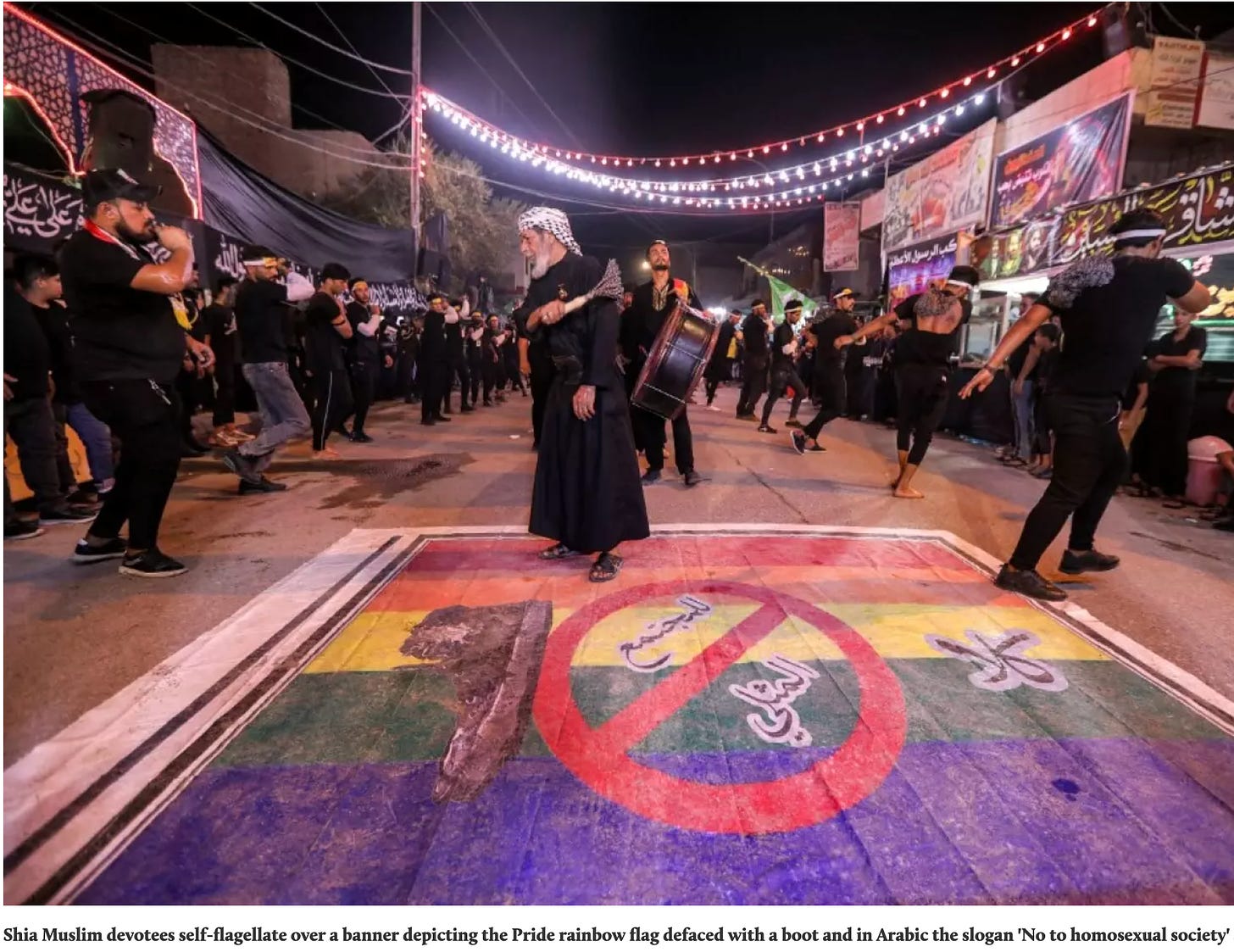

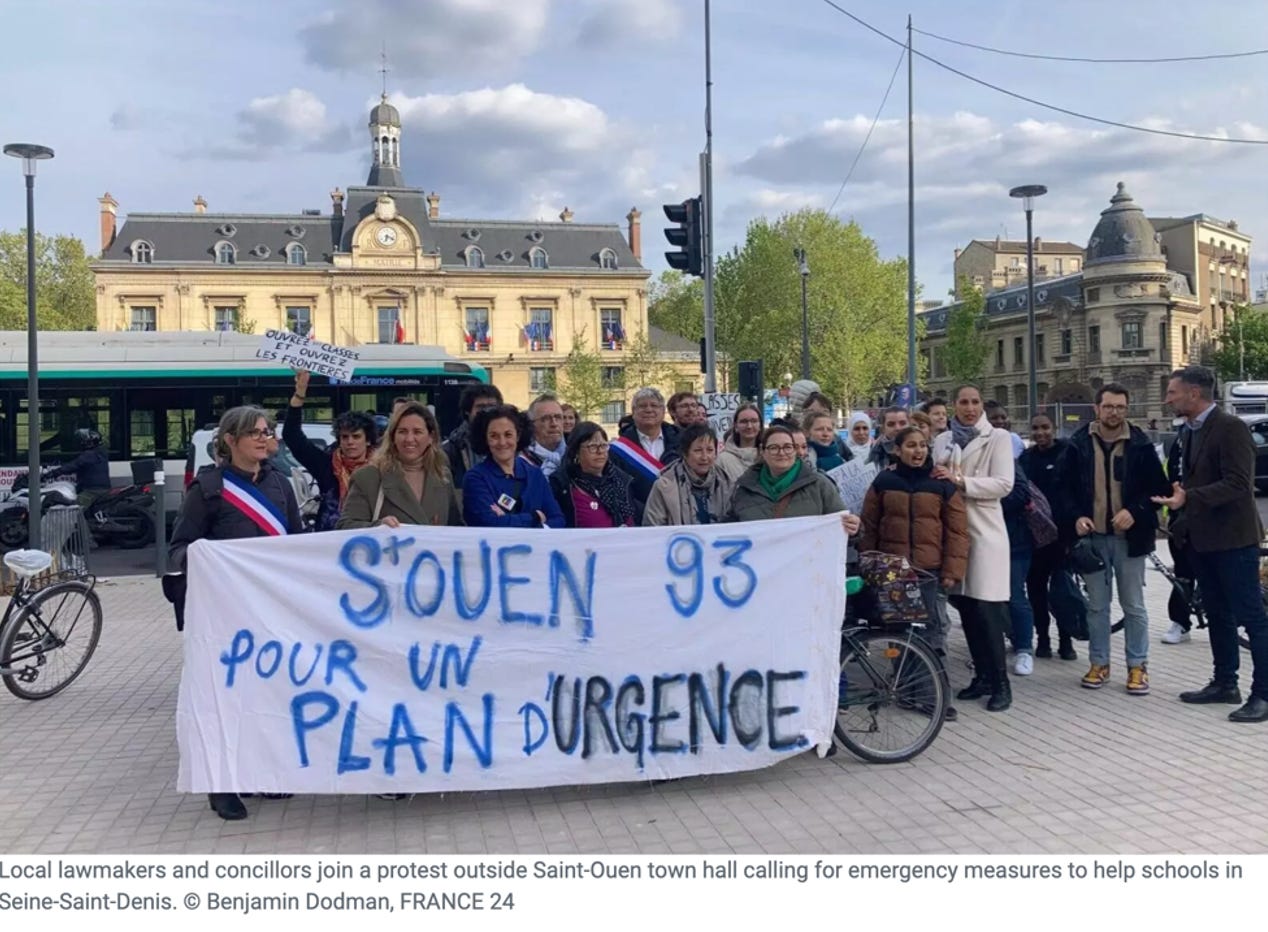
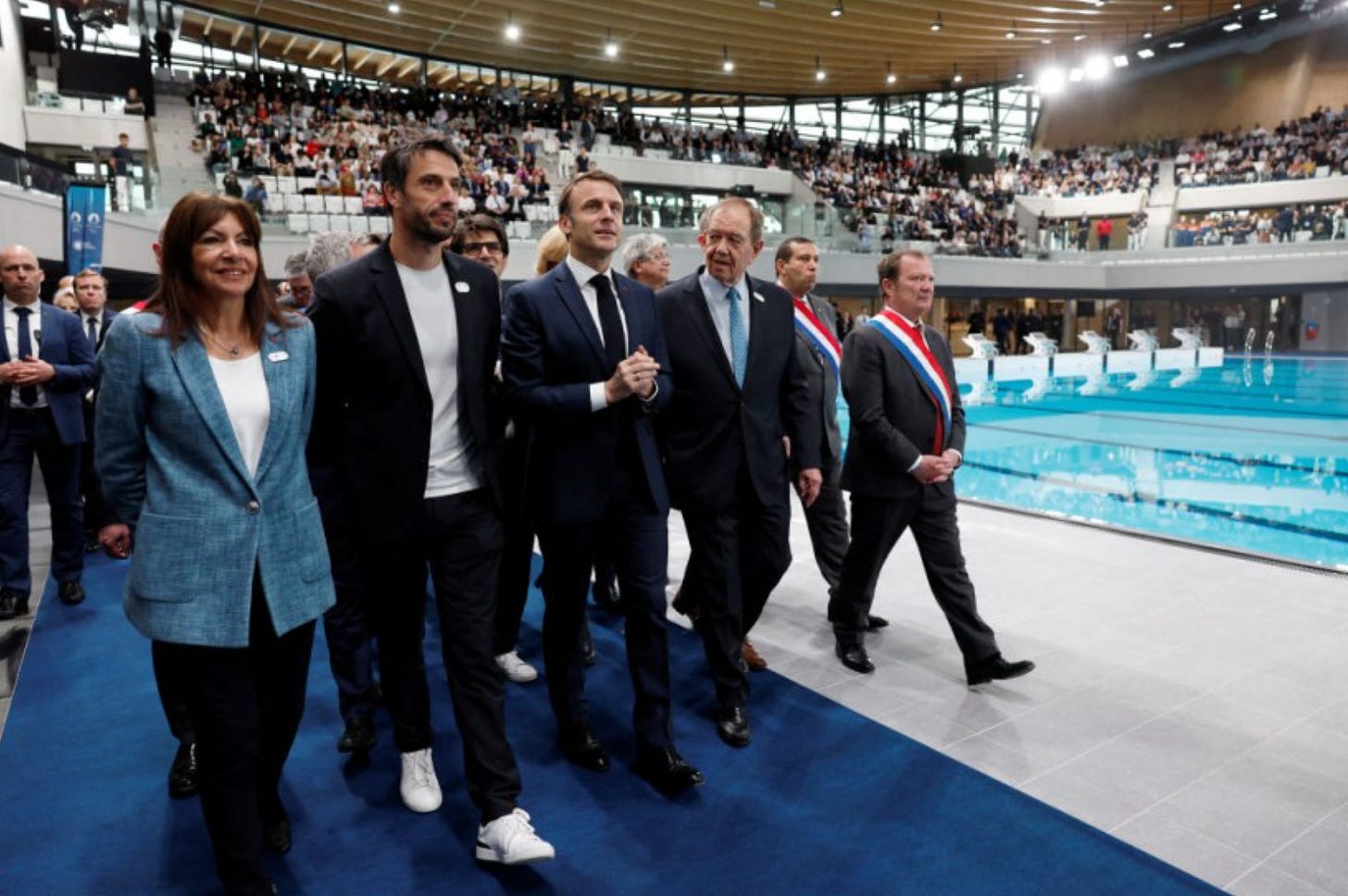
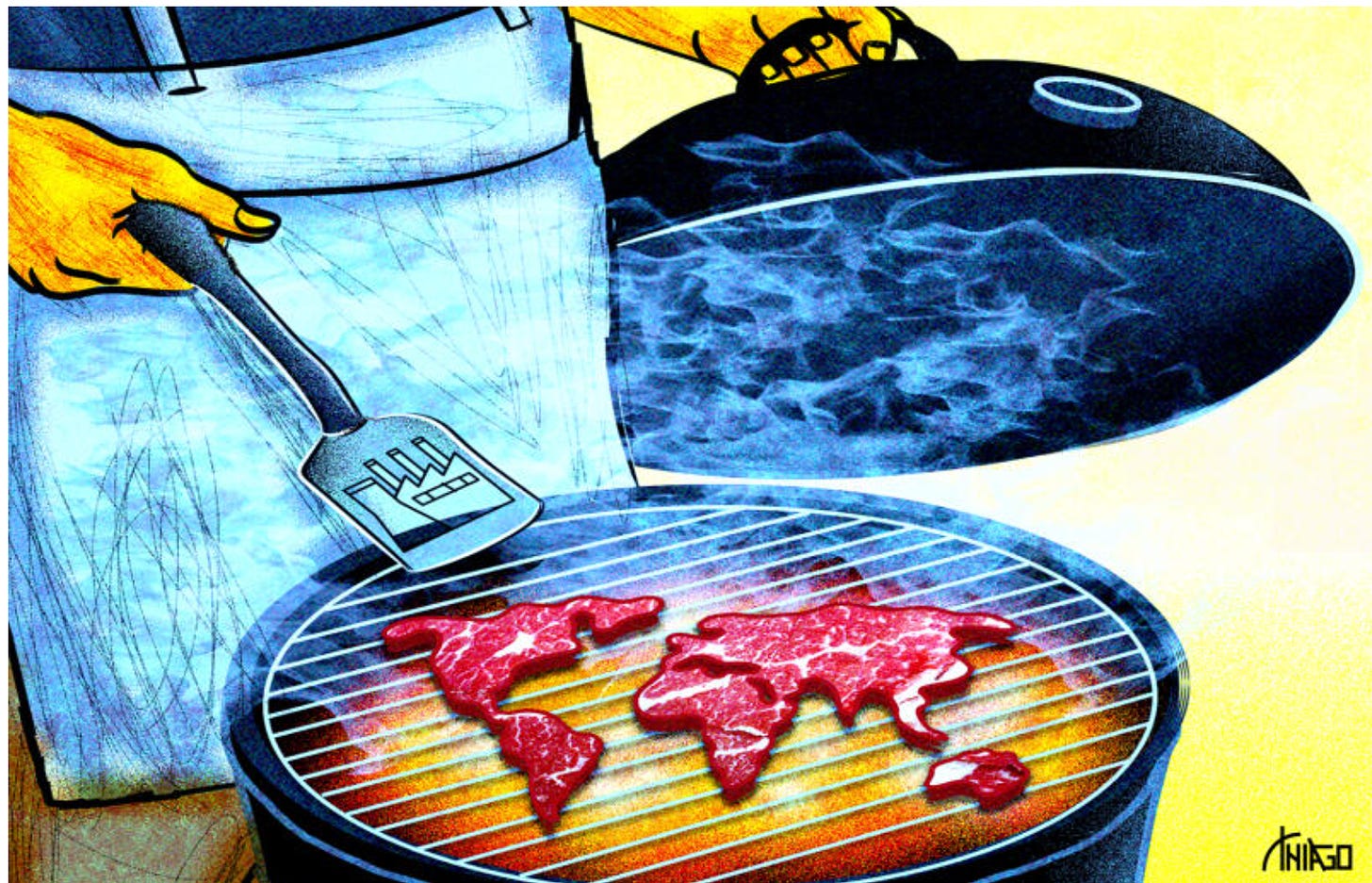


Good question ... it will be fun to add up the airmiles he's booked at the end of each year ... not an impossible tasik !!
That is SO kind of you, Kay !
I do try to find something in every issue that will really move most of my readers !!